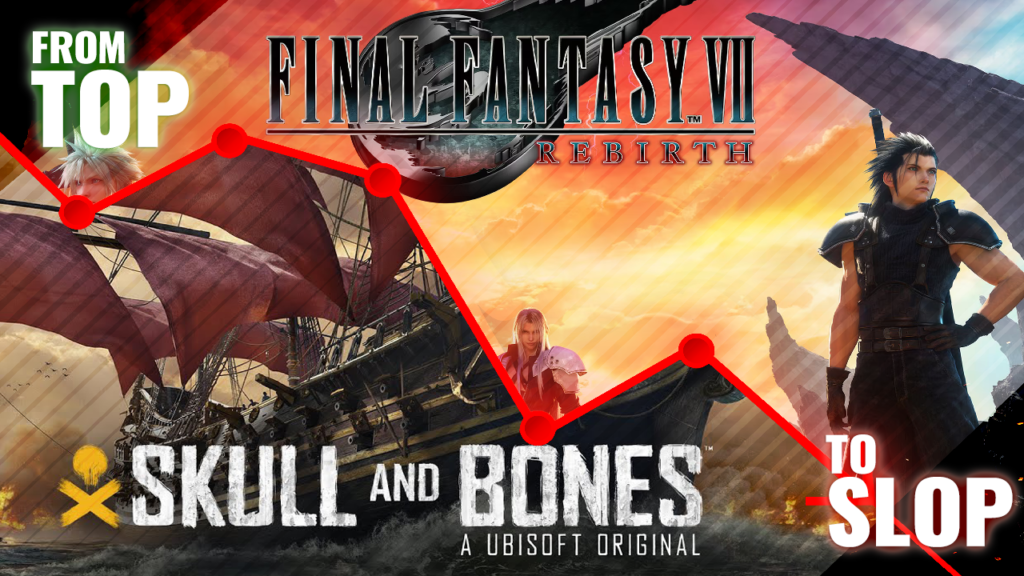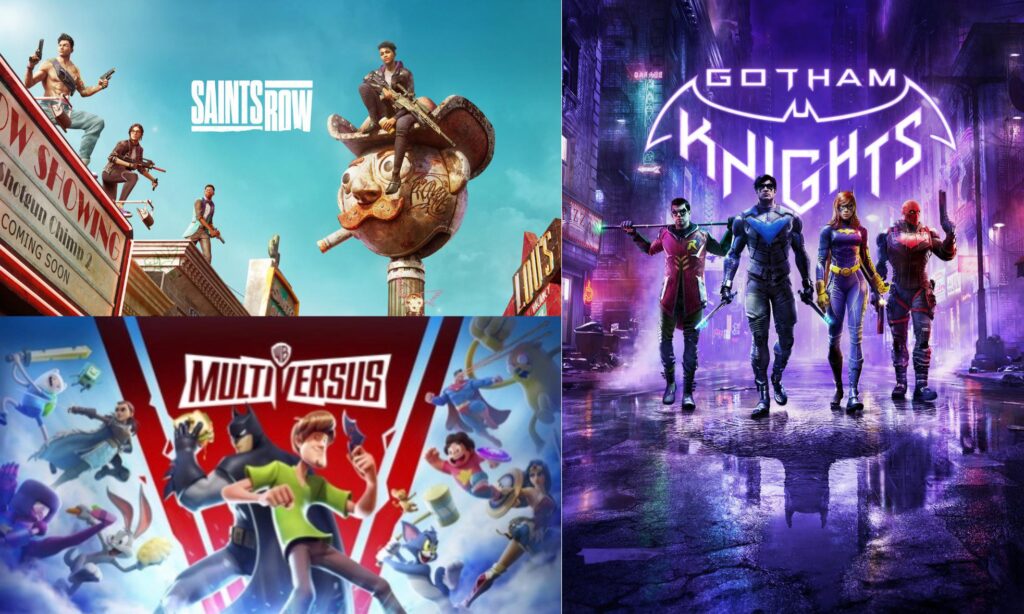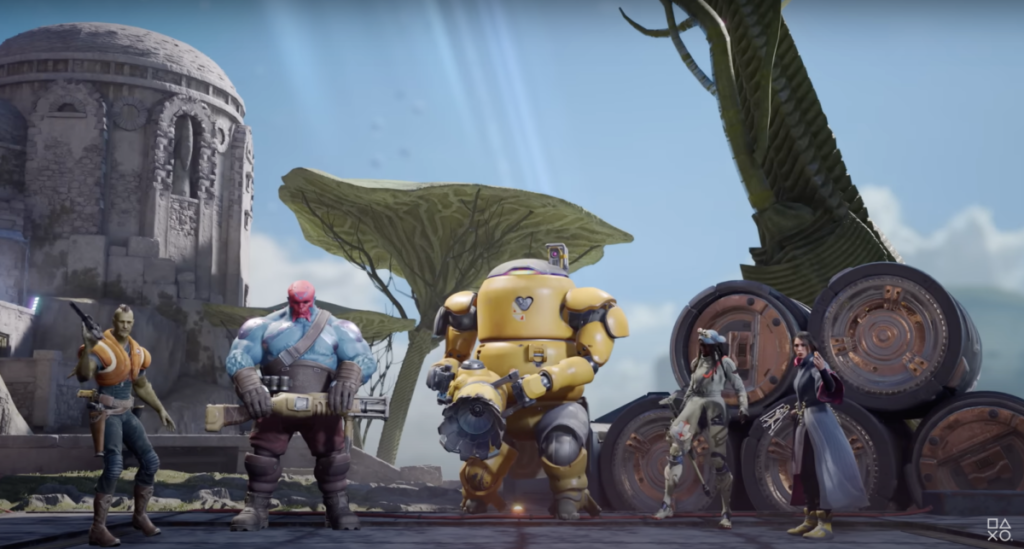

"Rhetoric in serious discourses is like the flowers in corn; pleasing to those who come only for amusement, but prejudicial to him who would reap profit from it"

-Jhonathon Swift

As my previous blog posts suggest, I am pretty much a heavily gaming focused when it comes to what I do with my free time. I play all sorts of games- from Co-op shooters, to farming simulators, to even some roguelikes. However, there is a brand of game I am generally cautious with approaching: AAA games. For a name AAA, you would think they would be of exceptional quality? For a time, Yes, that was the case. However most of the player base would agree with my sentiment that AAA games in the modern era have definitely gone down the deep end since they once stood.

How did things turn so sour? Let’s take a “Duncan Deep Dive” into this predicament, with the use of Foucauldian Discourse.


"There are forms of oppression and domination which become invisible - the new normal".

-Micheal Focault
Rhetorical Discourse
But what is Focucaltian Discourse? Discourse generally is “generalization of the notion of a conversation to any form of communication” (Wikipedia). But, for Foucault’s case, it’s when discourse provides knowledge and meaning to a subject, often involving power relations, concepts and consumption of the material.
The Rise of AAA Discourse
How can we relate this to AAA games? For a start, AAA games weren’t always called AAA when they started. Games back in the day were a lot more restricted and resource intensive to create, so who could create them were bar none but few. So, larger companies were able to use their extended resources and talent to get a step up in the gaming scene, and created the first ever AAA game: Final Fantasy VII. Final Fantasy VII is highly regarded as a widespread commercial success, and one of the most influential games to release at the time, still an instant classic to this date.
However, Final Fantasy VII was able to do so well with the corporations hold on the public’s Epistime about video games. In this period, the internet was still quite young, so the voices of the people virtually were scattered and sparse. Most of the knowledge they would be able to get about games were physical media or cable, and these companies took advantage of that. Relating back to Final Fantasy VII, this big leap into starting the AAA era came with heavy marketing through these channels, with non stop commercials on the television and articles plastered over magazines, trying to reel in their target audience.

“There was not a single commercial break during a wrestling show that didn’t have a FF 7 commercial. That was great target-specific marketing, because Square knew WCW Nitro and WWF Raw had the overwhelming majority of 13-34 year old boys on Monday nights – at the time, far more than even Monday Night Gootball.” -Gaming_Esquire
With this initial boost of a first impression, other games of this caliber would follow suit, including classic titles such as Resident Evil, Majora’s Mask, and Spyro, striking a AAA rennasauce.
“AAA” became the buzzword of rhetorical discourse for high quality and professionalism among the gaming scene. People already associated the letter A with high grades of quality, such as getting an A on a test, or an A on a food grade rating, so triple the A’s gave the notion to the public that this was beyond exceptional quality, and it worked. These Companies were able to persuade the consumers into the cultural norm of associating AAA with something that you wouldn’t be able to find anywhere else on the market. It became that of Inclusive design, empowering the big corporations and setting power relations between themselves and other gaming companies and consumers.
These companies also used other measures to control the perception of their games to the public, being consoles. Consoles also had an inclusive design, limiting people to what they could play, or know about games to titles that these big gaming companies, such as Nintendo, Ubisoft and Sony could let through. For a while, AAAs were really the only thing people were talking about in the gaming scene, but that would soon change.
The Shift in the Scene
There came a huge shift in Epistime that would shake the AAA scene, which came through with the rise of the rising social media platform, Youtube. Youtube created a discursive formation which shifted the epistime from the hands of the large corporations, into the hands of the smaller companies and the general public. No longer were people only able to get gaming related news through company published magazines and commercials. Almost anyone with wifi could get their voice noticed in one centralized location, and formed a new competitor into the scene: the Rise of the Indie Games.
Now with a more prominent voice and tools at their disposal, smaller companies and creators started to get back the power they had once lost. Instead of professional games being limited to large companies, created by business executives, Indie developers were now able to get prominent titles out into the public through new channels such as the previously mentioned youtube, and even break through the console barrier with other provided platforms on the computer such as Steam.
Falling From Grace
It wasn’t just the presence of indie games that faltered the image of the AAA scene, although it did help. One major problem that led to the downfall in the AAA scene was the over reliance on their power relation and the cultural norm of the word to carry them, that studios under this title slowly shifted from becoming innovating to novel, to stale and greedy. These large studios would oversaturate the market with the same game types, such as the overly done hero shooter. From Blizzard’s Overwatch to Riots Valorant, the pinnacle finger pointer of what’s wrong with modern AAAs is Sony’s Concord.
Whats Wrong with Concord?
- Developed for over 8 years on a $400 million budget
- Another Hero shooter in a already existing oversaturated market
- Un-innovating gameplay with uninteresting design choices.
- Over Focus on Live Service forcing players to pour more money into the game on a existing $40 price tag
Some of these issues have been plauguing the Modern AAA scene for whilw now, and gamers are finally sick of it.
Concord was the most recent and biggest gaming flop to date, and would be best described by the words “Slop” and “Cash Grab”. These words were set as the new discourse surrounding the current AAA scene as the power relations had shifted from the large studios into the hands of the people through the rise of Indie developers and gamers.
Desperate times of the "AAAA" games
This wouldn’t stop these large studios from trying to reclaim their former power. Ubisoft would start trying to persuade the public of the concept of AAAA Games, In which in name they would surpass even AAA. However unlike AAAs initial success on release, people were already tired and skeptical on increasing the quota further. The release of Skull and Bones reinforced that sentiment with the same lazy design choices ever present with the current AAA industry. It seems they haven’t learned.


We can summarize this shift in discourse on the state of AAA in relation to Foucault’s Evolution in the Meaning of Madness.
- Just how madness was received positively as a conceptual exclusion, AAA titles were a new exclusive to the gaming scene, and the companies under these titles had the extra resources and marketing to snuff out other smaller competitors. They were able to bask in the “enlightened” type of games, and as the only real choice, as that was what only the public saw.
As madness slowly turned into a negative connotation by the masses, the same could be said with AAA games. With alternative options such as Indie games becoming the new “normal” , and the current decay of AAA titles becoming the “Abnormal”, in essence becoming an outlier of the gaming industry. There are Still Good AAA titles, but them being under the AAA tag places them under a bad light before they get a chance to shine.





